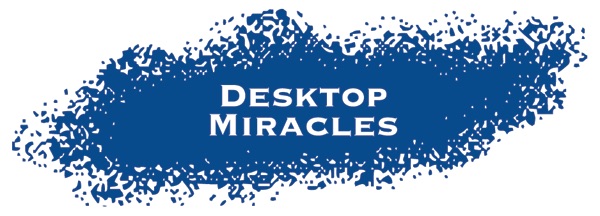NOT FINAL : WRITING IN PROCESS
Deciding on your publishing business model : Traditional, Independent, or Hybrid,
is the single most important publishing decision you will make.
It can literally be the difference of tens of thousands of dollars.
These three terms are tossed around somewhat casually, with different meanings and definitions depending on the person talking, and sometimes their motivations. I’m going to explain this in layman’s terms and generalities for publishers, emphasizing the important distinctions and how they are relevant to an author*. It will be vastly simplified (VS), there are obviously exceptions to a lot of this, and I’ll use some generic numbers to highlight an issue, not as a deeply precise accounting exercise. So hopefully my industry experts cut me some slack.
So here’s my *very generalized* definitions for the point of this article:
Publisher: the company (publishing house) responsible for bringing a title/product to market
Author: the person (or company) responsible for writing the manuscript/book.
Traditional Publishing is what most people think of: A publisher buys the rights to publish an author’s manuscript. The author receives some level of compensation (advance + royalties), the publisher is responsible for all the publishing tasks through their team, and the author is involved to some degree in marketing and promotion.
Independent Publishing is essentially the opposite of that: the author publishing a book is responsible for all the publishing tasks, as well as the marketing and promotion. I differentiate independent publishing from self publishing by the degree of professionalism and the resources and budget. Independent publishing refers to an author hiring professionals or skilled people for the tasks the author isn’t skilled at themselves. The author essentially builds their own team to execute the publishing tasks. Self publishing frequently means the author trying to do everything themselves, regardless of their abilities to execute the tasks, and frequently with minimal financial investment.
Hybrid Publishing is of course the gray area in the middle, where a third party “publishing company” is responsible for an agreed upon number of the publishing tasks, for some level of compensation (fees & royalties), while the author pays for those services and is responsible for the rest. There are many hybrid publishers who will do an excellent job on a project, as good or better than a traditional publisher for reasons described below, and charge reasonable fees relative to their work. (disclaimer: Desktop Miracles operates as a type of hybrid publisher) There are also vanity presses who produce work of marginal quality and sell authors dreams of success, getting paid while doing as little work as possible and frequently outsourcing the actual work to the lowest cost providers.
It’s extremely important to note that almost all of the above elements are negotiable depending on each parties interest level in, and belief in the profit potential, of the book.
If you are a well-known author with a large platform and a strong sales history, you can negotiate much more favorable terms from a traditional publisher (advance payments, royalty rates, marketing budgets, etc) Celebrity book deals are a perfect example. A hybrid publisher who thinks your book and platform has tremendous potential may be willing to provide more services for lower fees in exchange for a percentage of sales revenues.
Conversely, if you are an unknown author without a strong sales pitch, you may receive very little advance, “standard” low-end royalty rates, and minimal support from a publisher’s marketing team. A hybrid publisher will provide their services for a fee, making sure their expenses and required profits are covered by the fees the author pays, with any additional shared sales revenue being a bonus.
The contract terms and financials you are able to negotiate can vary dramatically if the other party thinks you’re going to sell 100,000 copies vs 5,000. If someone is giving you pie-in-the-sky sales forecasts, but their contract and revenue stream doesn’t reflect that, beware.
Let’s look at several important areas, how they are different depending on the business model, and how the differences might be significant to you:
• Advance Payments (Advance on Royalties)
• Royalty rates
• Marketing support (financial and priority)
• Timelines and Release Dates
• Design Control
• Editorial Control
• Revision & Update Control
• Buyback costs / Author’s Copy costs
• Direct sales royalty agreements
• Content control
• Credibility & perceived value
• Ancillary & derivative products
• Future products
• Print runs
• Printing specifications and materials
• Bookstore availability and distribution
• Sales potential
• Author involvement & time commitment
• Direct sales revenue
| Traditional | Hybrid | Independent | |
| Advances | Negotiable from $1,000 +++ | very rare to non-existant | None |
| Royalty rates | hardcover 10-15% list, paperbacks 5-8 list% ebooks 20-25 net% | Negotiable from 40-80% | 100% after expenses |
Typical royalty rates for business books vary by format and publishing model. For traditionally published books, hardcover royalties might be around 10-15%, paperbacks 5-8%, and ebooks 20-25%. Self-published authors can earn significantly higher royalties, potentially up to 70% for ebooks.
Here’s a more detailed breakdown:
Traditional Publishing:
- Hardcover: 10-15% of the list price.
- Trade Paperback: 5-8% of the list price.
- Ebooks: 20-25% of the net price.
- Audiobooks: 25% of the net price.
- Authors may receive 50-90% of net sales.
- Amazon KDP: Up to 70% for ebooks priced between $2.99 and $9.99, and 35% below or above that range.
Important Considerations:
- Net vs. List Price:Royalties are often calculated on either the net price (after discounts) or the list price (cover price).
- Advances:Traditionally published authors usually receive an advance against future royalties, which must be “earned out” before they start receiving royalty payments.
- Sales Volume:Some royalty rates increase after the author reaches certain sales milestones.
- Discounts and Returns:Publishers may adjust royalties for discounted sales or books returned by retailer


Comments are closed